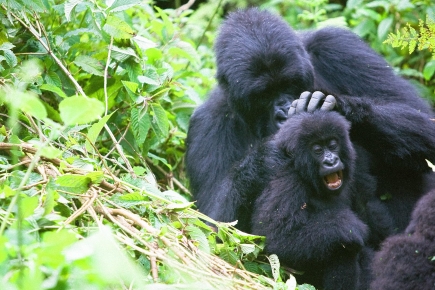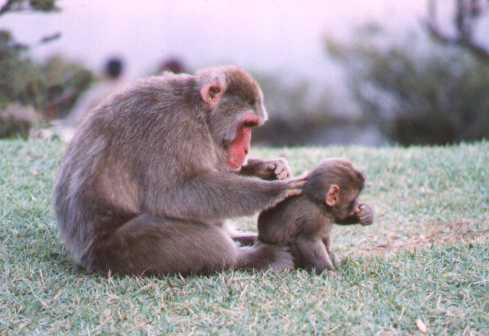Social Grooming In Primates
Biology 342 Fall 08
David Krueger and Lanlan Jin
Ontogeny:
How does this behavior develop during an individual's lifetime?

Figure 5: female mountain gorilla grooming baby (www.safaribill.com)
Primates of all ages receive allogrooming (social grooming). Young primates are groomed by their mothers and reciprocate once they reach a certain age. Juvenille primates may groom many different individuals, but usually spend much or most of their time on their mothers. Generally speaking, young primates do not perform allogrooming as much as fully developed adults.
In a study on captive baboons, young baboons were first observed grooming adults at 5 months old, and grooming each other between 6 and 12 months. Additionally, juveniles were found to groom their mothers more during the weaning period, which is 11-15 months of age (Young, Coelho Jr. and Bramblett, 1982).

Adolescent female chimpanzees also mostly groom their mothers. Adolescent males will groom both male and female adults, but do not follow normal grooming patterns until adulthood (Pereira and Fairbanks, 2003).
Other studies have found that for captive rhesus monkeys, grooming between infants is rare, and the behavior is mostly performed by monkeys 2.5 years and older, which is to say, adults (Young, Coelho Jr. and Bramblett, 1982).